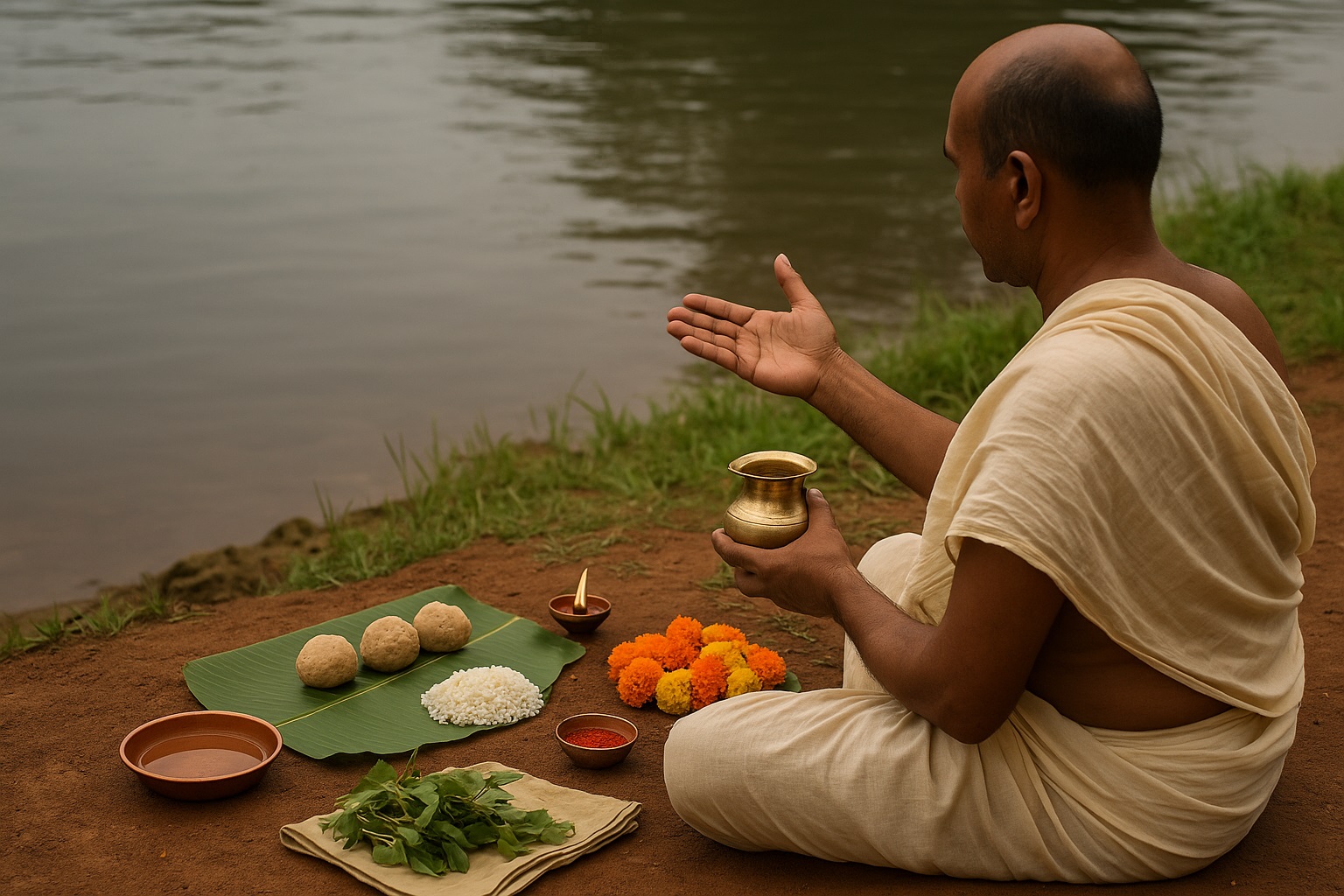
PANAJI
Vandana Borkar makes time from her busy schedule every year to perform Shraddh for her late husband, father-in-law, mother-in-law and brother-in-law. “Seeking blessings of our loved ones who are no longer with us is important for the wellbeing of the family. My husband, late Dr Shailesh Borkar, passed away over 25 years ago. Yet I perform Shraddh in his name every year as it gives me strength and peace to run the hospital we built together,” says Vandana, proprietor of Borkar Multispecialty Hospital in Margao.
“Shraddh means that which is done with ‘Shraddhaa’, or deep devotion. It is the act of remembering and respecting those who have passed away, and offering something in their name with gratitude. There are 96 types of Shraddh, but the most important and unavoidable one is for our parents. Every child is bound to do it,” explains Narayan (Sandeep) Siddhaye, founder and chief trustee of Shree Ramkrishn Ma Sarada Bhaktichetana Pratishthan, a charitable trust that spreads awareness about India’s ancient traditions.
According to Siddhaye, Rishi Jamadagni, father of Parashuram, gave Shraddh its standard form. Though practised since ancient times, he shaped it into a scientific practice. The Hindu calendar, filled with festivals and rituals, sees life as a journey from birth to death – and beyond. As death is not the end, rituals for ancestors continue to mark this journey.
This year, Pitru Paksha, the 16-day period for Shraddh, begins on September 7 and ends on September 21 with Sarvapitri Amavasya. During this fortnight, families remember and honour their ancestors.
Why perform Pind Daan, Shraddh and Tarpan?
Hindu families perform these rituals to repay ancestral debts and seek their blessings. The belief is that neglecting Shraddh leads to hardships. Food, water, clothes and money are offered to Brahmins or even strangers in the name of ancestors.
A shloka from the Markandeya Puran warns that families who neglect Shraddh lack strong descendants, suffer poor health, face financial strain and live shorter lives.
Ayurveda expert Vaidya Parikshit Shevde supports this belief. “In my practice I have seen proof of this. Our ancestors are behind our health and prosperity. The genes we carry are their gift, and gratitude is a must. Ignoring them is being ungrateful,” he says.
He also stresses that donations (daan) are not a substitute for Shraddh. “Annadaan is good, but it cannot replace Shraddh,” he explains.
The journey of the soul
Siddhaye says Shraddh helps ancestors move to higher realms. A soul usually remains on earth for a year after death. Once the first-year Shraddh is done, it rises to Bhuvarloka, where the ancestors live. If Shraddh is missed, Pitru Paksha offers a chance to help the soul move upwards. After the first year, Shraddh is performed annually on the death anniversary according to the lunar calendar.
If one misses Pitru Paksha, rituals can still be done until mid-November, before the Sun moves into Scorpio.
Special days and places
Each lunar day of Pitru Paksha is dedicated to specific ancestors. For instance, the ninth day is for married women who died before their husbands, while the twelfth is for children and ascetics. The fourteenth is for those who died abnormally, such as in accidents or war. The final day, Sarvapitri Amavasya, is for all ancestors. Performing Shraddh at Gaya in Bihar is considered the most powerful. Other important places include Kashi, Haridwar, Prayagraj, Trimbakeshwar and Pashupatinath in Nepal.
Shraddh today
At the Isha Yoga Centre in Coimbatore, a special Kalabhairav Shanti ritual is organised on Mahalaya Amavasya. Families can join in person or register online to perform it for their loved ones.
Do’s and don’ts
During Pitru Paksha, auspicious events such as weddings, housewarmings or starting new businesses are avoided. Even buying new clothes is discouraged. Garlic and onion are often kept off the menu. Families are encouraged to maintain a peaceful home, pray regularly and eat simple meals together. A homemaker from Patna puts it simply: “This is when we pause our celebrations for the sake of our ancestors. We all sit together, remember them and hope their souls find peace. It binds the family.”
Shraddh is usually performed by the eldest son. In Bihar, rituals are especially detailed. A son must first offer food or water to ancestors before eating himself. Food is kept out for crows – if a crow eats it, it is believed the ancestors have accepted it.
Women also play symbolic roles. For example, a daughter-in-law lets her wet hair drip dry, as falling drops are thought to quench ancestral thirst. Food is vegetarian, liquor is avoided, and the atmosphere is austere – yet the time is seen as sacred rather than sad.
“Pitru Paksha is about gratitude, not fear,” says a Pandit.
“By remembering our ancestors, we give peace to them and ourselves. The bridge between generations stays alive. Sometimes, ancestors even appear in dreams to those observing the rituals.”